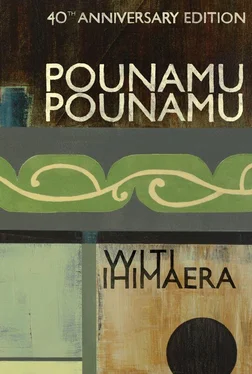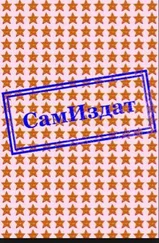‘What is the greatest thing that we can do as a family, son?’ he asked. ‘It is to love and care for each other. Your Nani has loved us all her life, looked after us and fought many battles for us. It is only right that now she is old our turn has come to look after her. By loving her we honour her. By looking after her we truly begin to understand how painful as well as fulfilling love can be. Many people are not given this great gift of loving someone as old as she is. So while you have her, you love her, eh?’
I told him I would make Nani so happy that she would never want to leave. But Dad, he didn’t understand that I knew my Nani wouldn’t go away. He just smiled sadly and put his hands around my shoulders. ‘Some day,’ he said. ‘Some day.’
Sometimes, late at night, I’d hear Nani crying because she was lonely. I’d creep softly down the corridor to her room and brush her tears away with my hands.
‘You’re too old to cry,’ I’d growl her. But she’d keep weeping, so I’d hug her for a while. ‘Turi turi, Nani,’ I’d whisper. ‘I’m here. Don’t be afraid.’
And sometimes, I’d stay with her until she went to sleep again.
‘Here’s one, mokopuna!’ she would yell. ‘I got one!’
And she would hold up a sea shell she had found.
My Nani, she thought I liked shells; I don’t know why. Maybe it was because when she first came to stay with us, she saw a paua shell in my room. Whatever it was, every time we went down to the sea, she’d wander along the beach, looking for shells to give to me.
‘You want this one?’ she’d ask. And she’d cock her head to one side and look into my eyes. Sometimes, she looked so hardcase that I’d laugh.
‘Okay, Nani! We take it home.’
Then she’d look very happy and drop the shell into her kete.
‘We taking you home,’ she would tell the shell. ‘We taking you home for my mokopuna.’
And every now and then, as we walked along the beach, she would let go of my hand to get another shell glittering on the sand.
‘I already got enough, Nani!’ I would yell.
But always, she would show it to me and cock her head as if she was asking a question.
‘All right, Nani,’ I would sigh. ‘We take this one home too.’
It used to be good just wandering along the beach with Nani. If it was sunny and the sea wasn’t rough, she’d let go of my hand more often, and wander off alone. I didn’t mind, because I knew Nani wasn’t really alone; she was wandering with Nani Pita on some remembered day.
But sometimes, a seagull would scream or cast its shadow over her head. Then she would stop and begin to tremble.
‘It’s all right, Nani,’ I’d say. ‘I’m here.’
And she would reach out for my hand.
‘You won’t leave me will you, mokopuna?’ she would say.
‘No, Nani,’ I would answer. ‘Turi turi now.’
And we would walk together again. Nani, she never left me when the sea was stormy. She used to be very scared and hold me very tight. Seaweed, it frightened her. She’d look at the waves and see the seaweed rising with them and whimper, afraid that she’d be caught by the long, black fingers.
And sometimes, she would make me scared too.
‘We go back home now, eh?’ I would ask her.
‘Ae, we go home, mokopuna. Home.’
And she’d clutch her bag closely to her, and the shells would clink and scrape against each other.
One day, my Nani, she wasn’t home when I got back from school. I looked in her room, I looked everywhere, but I couldn’t find her. Mum got worried and went to get Dad. But I knew where she’d be.
I ran down the road.
‘Nani! Nani!’
I don’t know why I was crying. Perhaps it was because she had gone without waiting for me.
‘Nani! Nani!’
I heard the sea murmuring as I ran along the path, toward the cliff. I looked down to the beach.
My Nani, she was lying there.
‘ Nani! ’
I rushed down the cliff toward her. I hugged her to me.
In her hand was a sea shell.
‘Yes, Nani,’ I said. ‘That’s a good one, that’s the best one you’ve ever found for me. We put it in your bag, eh? We take it home. We go home now, we go home …’
But she didn’t answer.
Her mind had wandered far away, and my Nani, she had wandered after it.
‘Haere mai, mokopuna,’ she would say.
And always I would go with her.
‘Where we going, Nani?’
‘We go down to the sea, mokopuna. To the sea.’
THE CHILD
This story is about one of my other grandmothers, Nani Puti, whom my mother Julia brought home to stay with us because she was suffering from dementia. It was inspired by a memory of taking Nani for a walk along Wainui Beach.
‘The Child’, ‘The Whale’ and ‘Tangi’ are possibly the most elegiac of all the stories in Pounamu Pounamu and, in my opinion, certainly the richest, most poetic and best written. But around 2002, thirty years after the first publication of the collection, I realised that whereas the majority of stories in Pounamu Pounamu were waiata aroha, these three (plus ‘Fire on Greenstone’) were tonally different, more like waiata tangi. For instance, you could ‘read’ the four stories subtextually as conveying a world — Maori rural life and traditional culture — that was in decline or dying. ‘The Child’ was about the changing of generations, with the great influence of the kuia in decline because of the discontinuity of memory; the whale in the short story ‘The Whale’ was Maori culture itself, dying because the people were being influenced by Pakeha ways; and ‘Tangi’ was a story in which the traditional society, as personified in the father, is changing and the young son must find his own strength within a non-Maori world. But since 1972, Maori had sought sovereignty, tino rangatiratanga, and there were all the signs of a culture in transcendence.
This was why I rewrote Pounamu Pounamu in 2003. And so, for instance, the story ‘Tangi’ now ends subtly (I hope) with the addition of a traditional proverb: ‘You are from a seed that was sown in Rangiatea and you will never be lost.’
I was like that seed, too, when Jane and I, after flying to Greece and taking a mad Tiki Tour bus trip around Europe, returned to New Zealand in early 1972. We arrived to the happy news that David Heap and Heinemann Educational had accepted Pounamu Pounamu and Tangi … and a third book. This third book had originally been ‘Village Sunday’, a novella which I had written for inclusion as the final story of Pounamu Pounamu. David, along with Maurice Dowthwaite, who was managing editor of Heinemann, considered that with an additional 25,000 words it could be published separately — which it was, with the title of Whanau.
He sits, this old kaumatua, in the darkness of the meeting house. He has come to this place because it is the only thing remaining in his dying world.
In this whanau, this old one is the last of his generation. All his family, they have died: parents, brothers, sisters, relations of his generation, all gone. Ruia, his wife, she’s been dead many years. His friends, there are none. Children, mokopuna, yes, there are many of those. But of his time, only he and this meeting house remain.
The meeting house …
This old one, he sighs, and the sound fills the darkness. He looks upon the carved panels, the tukutuku reed work, the swirling red and black and white kowhaiwhai designs, and he remembers he awoke to life here. That was long ago, another world ago, when this meeting house and whanau, this village, brimmed over with happiness and aroha. Always he has lived here. This meeting house has been his heart, his strength. He has never wished to leave it. In this place lie his family and memories. Some are happy, others are sad. Some are like dreams, so beautiful that they seem never to have existed. But his dreams died long ago. With each tangi, each funeral, they have died. And he is the last of the dreamers.
Читать дальше












